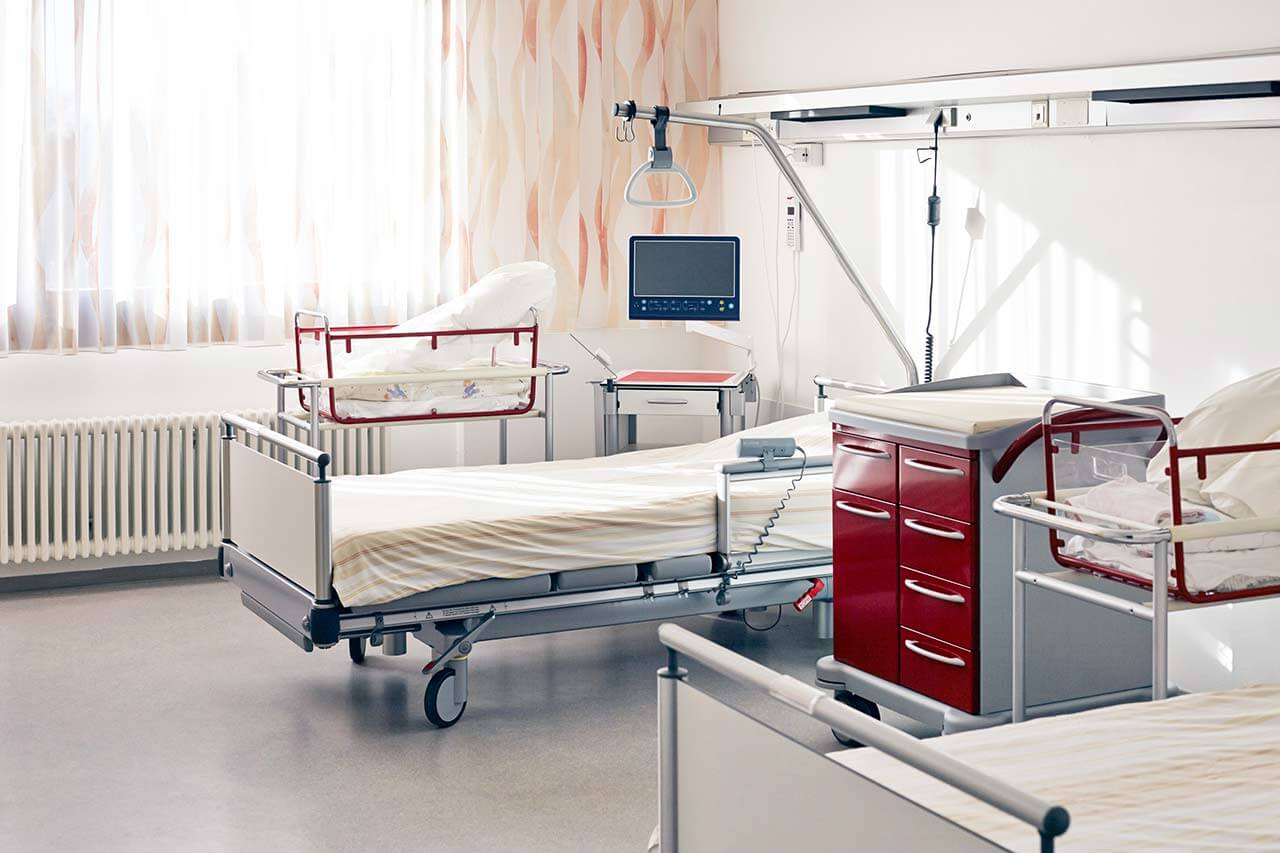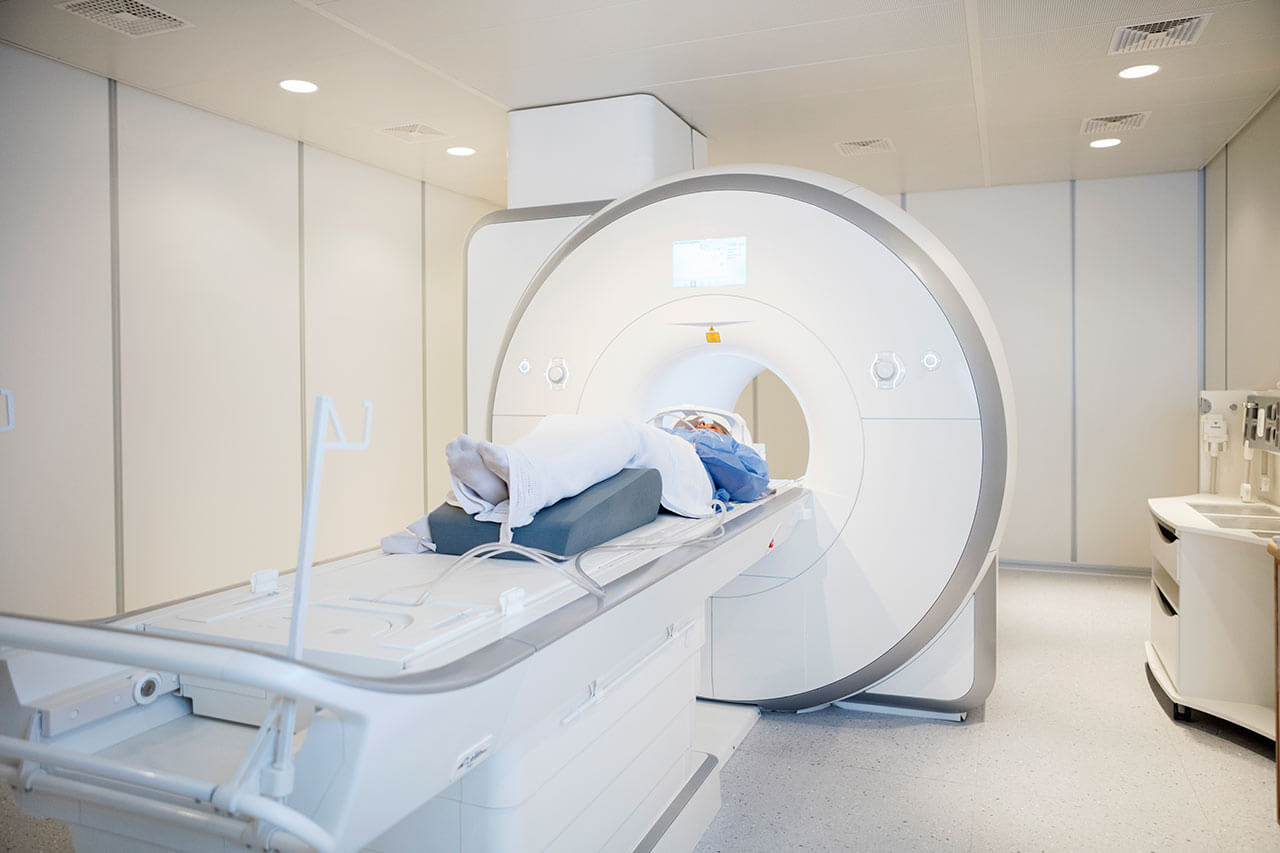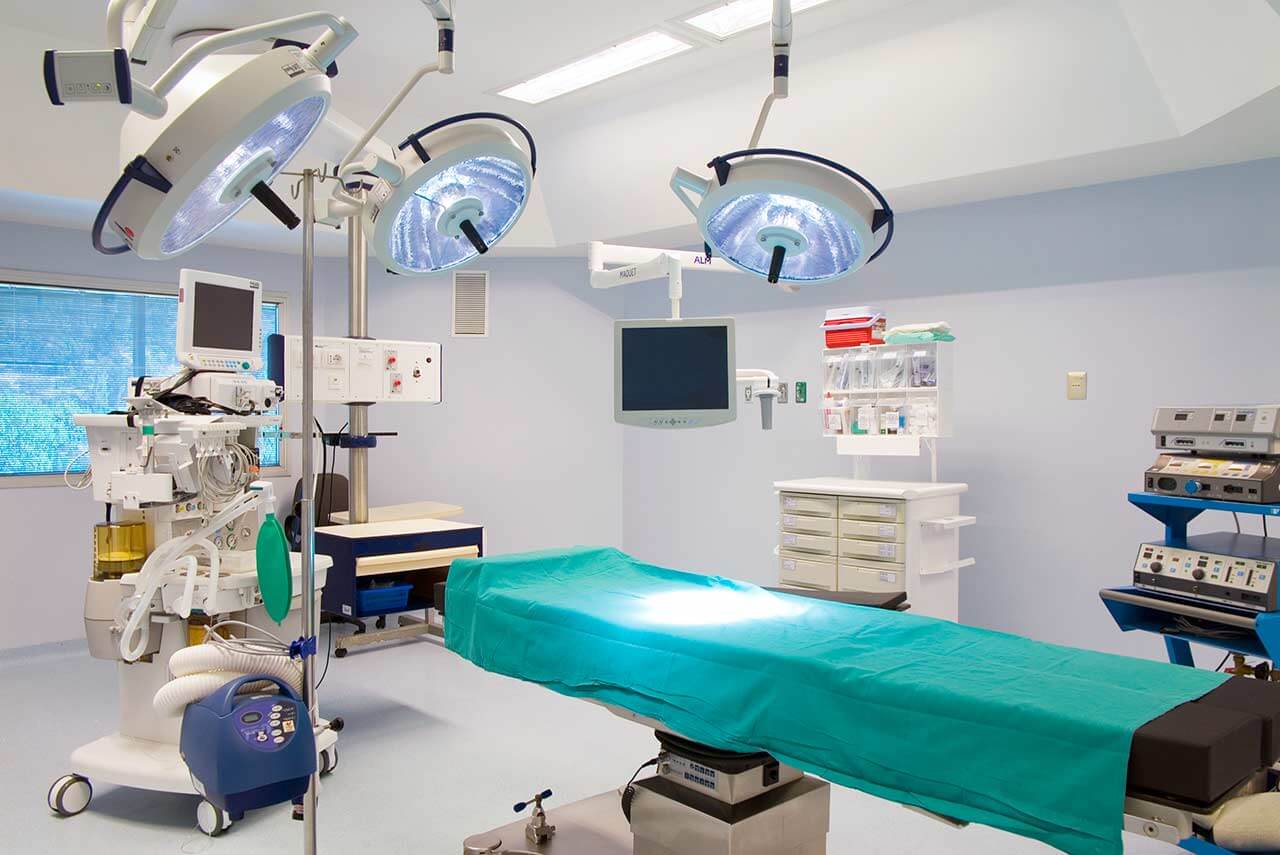
The program includes:
- Initial presentation in the clinic
- clinical history taking
- review of medical records
- physical examination
- laboratory tests:
- complete blood count
- biochemical analysis of blood
- inflammation indicators (CRP, ESR)
- TSH-basal, fT3, fT4
- indicators of blood coagulation
- individual plan of the chemotherapy
- symptomatic treatment
- the cost of essential medicines and materials
- nursing services
- control examinations
- consultations of related specialists
- recommendations for futher treatment
How program is carried out
During the first visit, the doctor will conduct a clinical examination and go through the results of previous laboratory tests and instrumental examinations. After that, you will undergo an additional examination, including laboratory assessment of liver and kidney function, ultrasound scan. Based on the received results, the doctor will elaborate the chemotherapy regimen. If necessary, related medical specialists will be involved in the elaboration of a treatment regimen (tumor board).
Chemotherapy is carried out as the day hospital procedure, without mandatory admission to the hospital. After the placement of a venous catheter, you will stay in a comfortable ward. An infusion system will be connected to the catheter, through which the required drug or a drug combination will be administered. All drugs are administered by intravenous drip, slowly, so the total duration of the infusion can be up to several hours. All this time, doctors and nurses will monitor your health condition closely.
After the course of chemotherapy, you will stay under medical supervision in the ward for a few more hours. If your general condition is good, your doctor will allow you to leave the hospital. You will receive the medical report with detailed recommendations regarding further treatment. In the future, you will be able to have a distant consultation with your attending physician and schedule the next course of chemotherapy, if necessary.
Required documents
- Medical records
- MRI/CT scan (not older than 3 months)
- Biopsy results (if available)
Service
You may also book:
 BookingHealth Price from:
BookingHealth Price from:
About the department
The Department of Gastroenterology at the Hospital Cologne-Holweide provides the full range of diagnostic and therapeutic services in accordance with the requirements of modern European medicine. The medical facility specializes in the diagnostics and treatment of gastrointestinal diseases, such as stomach, small intestine, large intestine, esophageal, and pancreatic conditions. The department's team of gastroenterologists focuses on patients with malignant diseases of the digestive system that are treated in cooperation with general and abdominal surgeons. The department's physicians have vast experience in providing medical care to patients with inflammatory bowel diseases such as Crohn's disease and ulcerative colitis. Patients with infectious gastrointestinal diseases are also treated here. When treating patients, the department's gastroenterologists actively use drug therapy and endoscopic procedures. The department has the largest Endoscopy Center in North Rhine-Westphalia, where more than 12,000 procedures are performed annually. Clinical practice strictly adheres to current clinical protocols, and the medical staff ensures compliance with hygiene and safety standards. The physicians make every effort to provide high-quality treatment, devote sufficient time to personal communication with patients, and take into account their individual needs and wishes. The department is headed by Prof. Dr. med. Arno Dormann.
A team of gastroenterologists, in cooperation with abdominal surgeons, treats patients with gastrointestinal cancer. Doctors often deal with the treatment of stomach cancer, in which a malignant tumor is formed from the mucous membrane cells of the organ. The specialists have in their arsenal many effective endoscopic techniques for the removal of stomach tumors, such as endoscopic mucosal resection (EMR) and endoscopic submucosal dissection (ESD). Patients need to understand that sparing endoscopic treatment ensures good results only when cancer is detected in the early stages. In the advanced stages of stomach cancer, abdominal surgeons are engaged in the therapeutic process. Their task is the removal of the malignant stomach tumor or resection of the organ. The endoscopic procedure or surgery is often complemented by chemotherapy and/or radiation therapy.
The department also successfully performs endoscopic procedures for colon and esophageal cancer. In the early stages of colon cancer, it is possible to remove the malignancy during colonoscopy, while esophageal cancer can be removed using endoscopic mucosal resection (EMR) or endoscopic submucosal dissection (ESD). The patient's diagnostic results are assessed by gastroenterologists and abdominal surgeons, who cooperatively decide on the most effective treatment. As a rule, when dealing with advanced stages of cancer, surgeons have to perform extensive resections.
Another priority focus of the department's doctors is the treatment of gastroesophageal reflux disease (GERD). This is a chronic pathology that occurs due to esophageal sphincter dysfunction, as a result of which the stomach contents move up into the esophagus and irritate its walls. In most cases, the diagnosis of suspected GERD is not complex. During the diagnostic process, a patient may undergo narrow-band imaging, intragastric pH-metry, impedance-pH monitoring, contrast-enhanced swallowing assessment, chest CT, and gastric emptying scintigraphy. As for the treatment, conservative options are considered first. These include lifestyle modification (smoking cessation, weight loss, and a healthy diet) in combination with drug therapy (most often proton pump inhibitors are prescribed). In complicated cases, surgical treatment may be performed, such as fundoplication or the implantation of the innovative LINX Reflux Management System device. Operations are performed using laparoscopic techniques.
Gastroenterologists also have excellent professional qualifications in the treatment of inflammatory bowel diseases such as Crohn's disease and ulcerative colitis. A diagnostic protocol for suspected above-mentioned pathologies includes gastroscopy, endoscopy, magnetic resonance imaging, video capsule endoscopy, classical endoscopy, laboratory tests, and other examinations. A treatment regimen is developed based on the diagnostic results, which usually includes drug therapy with the use of various groups of drugs and diet therapy aimed at eliminating nutrient deficiencies. Crohn's disease and ulcerative colitis are associated with a high risk of bowel obstruction and bowel cancer, whose treatment mostly requires surgery.
The department's range of diagnostic and therapeutic services includes:
- Endoscopy
- Gastroscopy
- Colonoscopy
- Esophagogastroduodenoscopy
- Magnifying endoscopy and narrow-band imaging endoscopy
- Chromoendoscopy
- Endosonography
- Esophageal manometry
- Esophageal pH-metry
- Endoscopic therapeutic procedures
- Polypectomy
- Balloon dilatation and botulinum toxin injections for achalasia cardia
- Endoscopic mucosal resection (EMR) and argon plasma coagulation for gastrointestinal tumors at the early stages
- Balloon dilatation and stent implantation for stomach and esophageal stenosis
- Latex ligation and endoscopic obliteration for esophageal varices with special adhesives
- Clipping, injections, and argon plasma coagulation for gastrointestinal bleeding
- Argon plasma coagulation for angiodysplasia
- Endoscopic removal of foreign bodies from the gastrointestinal tract
- Percutaneous endoscopic gastrostomy
- Percutaneous endoscopic jejunostomy
- Other diagnostic and treatment methods
Curriculum vitae
Higher Education and Professional Career
- 1982 - 1983 Biology studies, University of Marburg.
- 1984 - 1990 Medical studies, Free University of Berlin.
- Postgraduate internships: London (UK); Rochester, New Orleans (USA); Basel (Switzerland).
- Professional clinical training in gastroenterology:
- Department of Internal Medicine (focus on the treatment of infectious diseases), Charite University Hospital Berlin.
- Department of Internal Medicine (focus on the treatment of gastroenterological diseases), Hospital Minden (academic hospital at the University of Muenster).
- Thesis defense, Department of Surgery, Charite University Hospital Berlin. Subject: "Comparison of color-coded duplex ultrasonography with phlebography for assessing the deep vein system of the lower limbs in patients with varicose veins and deep vein thrombosis".
- Habilitation, Department of Gastroenterology, Hepatology and Infectology, Faculty of Medicine, Otto von Guericke University Magdeburg. Subject: "Enteral nutrition using percutaneous endoscopic gastrostomy and similar techniques: assessment and standardization of existing techniques, as well as the creation of new ones".
- 1998 - 2000 Senior Physician, Department of Gastroenterology, Hospital Minden (academic hospital at the University of Muenster).
- 2000 - 2005 Managing Senior Physician, Department of Gastroenterology, Hospital Minden (academic hospital at the University of Muenster).
- Since 2005 Head Physician, Department of Gastroenterology at the Hospital Cologne-Holweide.
Additional Qualifications
- 2000 Dietetics, German Academy of Nutritional Medicine (DAEM) and German Society for Nutritional Medicine (DGEM).
- 2003 German Society for Infectious Diseases (DGI).
- 2004 German Society for Gastroenterology, Digestive and Metabolic Diseases (DGVS).
Clinical Focuses
- Interventional endoscopy.
- Treatment of gastroesophageal reflux disease.
- Treatment of functional gastrointestinal disorders.
Memberships in Professional Societies
- German Society for Endoscopy and Imaging Procedures (DGE-BV).
- German Society for Gastroenterology, Digestive and Metabolic Diseases (DGVS).
- North Rhine-Westphalia Society of Gastroenterology.
- Professional Association of German Internists (BDI).
- German Society for Infectious Diseases (DGI).
- German Nutrition Society (DEGEM).
- European Society for Parenteral and Enteral Nutrition (ESPEN).
- Working Group of Managing Senior Gastroenterologists (AGLK).
Photo of the doctor: (c) Krankenhaus Köln-Holweide
About hospital
According to the reputable Focus magazine, the Hospital Cologne-Holweide ranks among the top medical centers in North Rhine-Westphalia!
The medical complex is an academic hospital of the University of Cologne, providing patients with high-quality healthcare based on the latest achievements in university medicine. The hospital admits patients with various diseases, including cancer, diseases of the hematopoietic system, urinary system, gastrointestinal tract, ENT organs, etc. The hospital is known for having one of the largest Departments of Obstetrics in Germany, where more than 1,800 babies are born every year. The health facility also houses the specialized Breast Cancer Center and the Colon Cancer Center, whose treatment success rates are consistently high. The hospital has advanced technical resources and highly qualified staff to provide patients with effective medical care in the areas of its specialization.
The hospital has a total of 465 beds. The medical facility annually admits about 20,500 inpatients and more than 63,900 outpatients for diagnostics and treatment. The hospital provides comfortable conditions and modern infrastructure to meet the needs and wishes of patients. The medical team at the hospital prefers a multidisciplinary approach to medical care, which is particularly valuable in treating complex conditions such as cancer.
In 2009, the hospital was successfully certified by "High-Quality Management of Acute Pain Syndrome" TÜV Rheinland Group in gynecology, surgery, urology, otorhinolaryngology, and anesthesiology. In addition, the hospital became the first emergency medical facility for adults in Cologne to be KTQ® (Cooperation for Transparency and Quality in Healthcare) certified.
The specialists at the hospital always strive to provide each patient with high-quality medical care in a pleasant atmosphere. Doctors are open to dialog, gladly answer all questions that patients are interested in, and provide moral support throughout the therapeutic process.
Photo: (с) depositphotos
Accommodation in hospital
Patients rooms
The patients of the Hospital Cologne-Holweide live in comfortable single and double rooms designed in light colors. Each patient room has an ensuite bathroom with a shower and a toilet. The furnishings of a standard patient room include an automatically adjustable bed with an orthopedic mattress, a bedside table, a wardrobe for personal belongings, a table and chairs for receiving visitors, and a TV with international channels. Wi-Fi is also available in the patient rooms.
The patients can stay in enhanced-comfort rooms, if desired. Such rooms are more spacious and additionally equipped with a safe, a mini-fridge, and upholstered furniture.
Meals and Menus
The patients are offered three tasty and healthy meals a day: breakfast, lunch, and dinner. Breakfast and dinner are served as buffets, and for lunch, there is a set of three menus to choose from.
If, for some reason, you do not eat all the foods, you will be offered an individual menu. Please inform the medical staff about your dietary preferences prior to treatment.
Further details
Standard rooms include:
Religion
A worship service is held in the chapel at the hospital every Sunday. There is also a prayer room at the hospital where one can pray in private.
The services of representatives of other religions are available upon request.
Accompanying person
Your accompanying person may stay with you in your patient room or at the hotel of your choice during the inpatient program.
Hotel
You may stay at the hotel of your choice during the outpatient program. Our managers will support you for selecting the best option.





